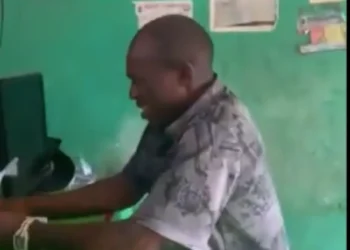Tanzania’s Jovin treason arrest in 2025 has sent shockwaves through East Africa’s digital creator scene, as 25-year-old influencer Niffer Jovin faces a potential death sentence for a light-hearted dance video featuring an audio clip of President Samia Suluhu Hassan’s voice.
The November 11 detention in Dar es Salaam, confirmed by police spokespeople, stems from charges under the Cybercrimes Act for “inciting disaffection against the state”, a treason-adjacent offence carrying mandatory hanging in Tanzania’s penal code.
Jovin’s clip, posted October 30 amid post-election tensions, showed her twirling to a looped snippet of Suluhu’s victory speech remixed with upbeat Afrobeat, captioned “Dancing to power vibes.”
What started as viral fun with 300,000 views has morphed into a chilling standoff, highlighting the regime’s iron grip on satire in a year of suppressed dissent.
Jovin, a rising TikTok star with 450,000 followers known for her empowering dance challenges and cultural commentary, was yanked from her Msongola home by plainclothes officers in the early hours.
Her family, speaking to The Citizen under anonymity, described a dawn raid that seized phones and laptops. “She was just having fun, celebrating like everyone else,” her sister Amina whispered, tears streaming during a makeshift press huddle outside the station.
Charged formally on November 12 before the High Court, Jovin’s bail plea was denied, with prosecutors arguing the video “trivialised national leadership” and risked “public disorder” in a nation still reeling from October 29 polls marred by opposition bans and over 500 claimed reported deaths.
The case echoes a broader crackdown post-elections, where CCM’s sweeping win under Suluhu – 97 per cent presidential – drew fraud cries from Chadema.
Authorities have nabbed over 200 for “subversive” posts, including exiled Mange Kimambi’s video leakers. Legal aid group LHRC decried Jovin’s treason tag as “disproportionate overkill”, noting the 1998 Penal Code’s death penalty for sedition hasn’t been invoked against creators before.
“This isn’t justice; it’s a message to silence youth voices,” LHRC chair Onesmo Kyauke told BBC Swahili, linking it to 2024’s media gag laws that jailed journalists for “false” coverage.
Diaspora Tanzanians in the U.S. launched a GoFundMe for her defence, hitting $10,000 in hours, while Ugandan influencer and presidential candidate Bobi Wine weighed in: “Art under arrest is tyranny’s fear.”
Suluhu’s office issued a stonewall statement: “Law applies equally; no one is above accountability.”
Whispers from insiders suggest political pressure, with the video’s remix viewed as mocking her “peaceful transition” narrative.
Jovin’s trajectory adds poignancy. From a modest Arusha upbringing, she built her brand, blending traditional ngoma dances with modern hooks, empowering women in conservative circles.
Her October post, meant to celebrate Suluhu’s historic female leadership, backfired amid blackout-era paranoia. Supporters rallied at the court, 200 strong, chanting “Hakuna huruma” (no mercy for injustice), but riot police dispersed them with tear gas.
As the November 13 hearings loom, Tanzania’s Jovin treason arrest in 2025 tests the republic’s democratic pulse. Will a dance clip doom a dreamer to the noose or spark a creator uprising?


















